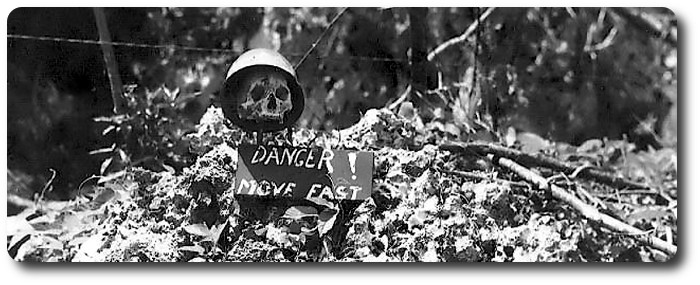Topic: The Field of Battle

The Most Essential Condition of Service is Danger
Bayonets of the Republic: Motivation and tactics in the Army of Revolutionary France, 1791-94, John A. Lynn, 1996
American troops in World War II definitely felt that their efforts were appreciated. Of 3,754 troops who were surveyed in the European theater, 82 percent answered that one half or more of the American people appreciated the soldiers' efforts. The last word has yet to be written concerning the American experience in Vietnam, but it is clear that the young men who fought in its jungles and rice paddies felt no such confidence in the folks back home. Some of the troops even went so far as to express their disillusionment by chalking "UUUU" on their helmets, that is "the unwilling led by the unqualified, doing the unnecessary for the ungrateful." There are indications that the young American in Vietnam was no less patriotic, tough, and capable than was his father in World War II. The great difference was that by the late 1960s a profoundly divided America could not applaud the soldier's actions. War resistance may have affected combat troops not so much by winning them over as political converts but by telling them that their suffering, endurance, and bravery would go unappreciated and unrewarded. The soldier could be left with the conviction that no one cared about him. He was a victim or sucker, fighting the war no one wanted.
Another aspect of wartime opinion is the status awarded to the wartime soldier. A nation that holds the peacetime soldier in contempt may glorify him at war. Perhaps it is only because an army swelled to wartime proportions contains a broad cross-section of society, so to look down on men in uniform is to look down on your own neighbors and sons. A last element of wartime opinion worth mention is the respect and aid given to soldiers' families. The knowledge that those at home are being honored and cared for not only frees a soldier's mind, but also tells him that he is respected and valued.
Reactions to conditions of service include opinions and feelings generated by the realities of the soldier's daily life. Some observers go so far as to say that good food, sufficient rest, efficient equipment, proper medical care, and frequent mail guarantee high morale. Experience does not always bear out this view, but such conditions are unquestionably important. Without doubt, good weapons give troops confidence while poor weapons sap it. Conditions of service also include less tangible, but very important elements, such as the character of discipline, the concern shown by company grade officers, and the competence of commanders. The momentum of victory or defeat is also a determinant of morale. An army marching from success to success has fewer morale problems than does the army it is defeating. Ultimately, troop reactions to all the elements of what will be called the military system become part of morale.
For the combat soldier, the most essential condition of service is danger and the fear it engenders. This point cannot be overstressed. Experience—time on the line—can teach a man to learn how to fight effectively, how to depend on his fellows, and how to deal with fear. Yet at the same time studies have demonstrated that courage has its season; men can only bear the burden of fear for a given amount of time before they collapse under its weight.' But fear is not the only condition that undermines morale after long periods at the front; boredom, too, takes its toll.

